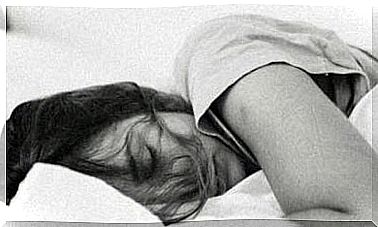Why The Covid-19 Vaccine Works Better If It Is Given In The Morning
A study supports the hypothesis that our defenses are regulated by internal clocks. The finding can help us reduce the chances of contagion with viruses such as COVID-19.

The seasonal rhythms and internal schedules of our immune system could make us more or less susceptible to infection and injury at certain times of the day or months of the year, a new study suggests.
A better understanding of these rhythms could have implications for the prevention and treatment of diseases like COVID-19. It could also help explain why certain illnesses, like the flu, tend to appear in winter, while symptoms of other illnesses, like multiple sclerosis, are often worse in summer.
The possible existence of internal immune rhythms is reinforced
That the flu affects us more in the cold months seems to us the most logical thing in the world, but the truth is that we are not sure why this is the case. It is assumed that the cold and the stay in closed interior spaces facilitates the contagion. These ideas are topical during the second wave of the COVID-19 pandemic. Now, a study has been able to confirm that the clocks of the human body’s immune system are decisive.
The team led by Dr. Cathy Wyse, a postdoctoral researcher at the Royal College of Surgeons in Ireland, has analyzed 329,261 blood samples and investigated whether there was a relationship between the time of day or day of the year they were drawn and the count of immune cells.
The results showed clear fluctuations in the number of white blood cells and markers of inflammation in the blood, suggesting that our immune function may be stronger or weaker, depending on the time of day and the season.
The data “supports the idea that there may be endogenous clocks and calendars in the immune system,” said Wyse, whose research has been published preprint and is pending peer review.
Rhythms are independent of other known factors
Importantly, variations in immune function could not be related to environmental or lifestyle factors, or vitamin D levels.
“This suggests that such changes in our immune system are due to body clocks, the innate mechanisms that allow us to keep track of time,” explained Dr. Rachel Edgar, from Imperial College London, who studies how viruses can exploit the moments of weakness of the rhythms to spread.
If you get vaccinated, better in the morning
In fact, the daily fluctuations observed in this study reflect patterns that Edgar previously documented in mice, with white blood cells congregating in the lymph nodes early in the mice’s active period and moving into the blood as the mice progress. towards its resting phase.
What happens in the lymph nodes is key to our immune response to vaccines and viruses such as the flu or the SARS-CoV-2 coronavirus: “In mice, the time of day they are put in contact with the virus has profound consequences for the immune response that occurs days later, “said Edgar.
“This, along with the evidence that the seasonal flu vaccine appears to be more effective when given in the morning than in the afternoon, strongly suggests that certain SARS-CoV-2 vaccines may work better if given by the morning”.
On the other hand, analysis of the annual cycle shows that there are fewer immune cells in circulation during the fall and winter than in the spring. This increases our risk of getting infections.
The immune system is most active in the morning
This theory has not yet been fully proven, and Wyse cautions against overinterpreting its results. However, from an evolutionary perspective, it makes sense that immune cells are mobilized when the day begins and we are more likely to come into contact with pathogenic microorganisms. Other studies have shown that cells involved in the repair of tissue damage migrate to wounds more rapidly during the day, reinforcing the hypothesis.
The findings confirm that biological time plays a fundamental role in human health and we can take it into account to adapt both our customs and medical treatment. For example, if we know that in winter our immune system is not going to defend us as effectively as in the morning, we can reduce our social activity at night, especially indoors. In this way we would minimize our exposure to pathogens at times when we are least resistant.
Scientific references:
- Cathy Wyse et al. Seasonal and Daytime Variation in Multiple Immune Parameters in Humans: Evidence from 329,261 Participants of the UK Biobank Cohort. MedRxiv.org








